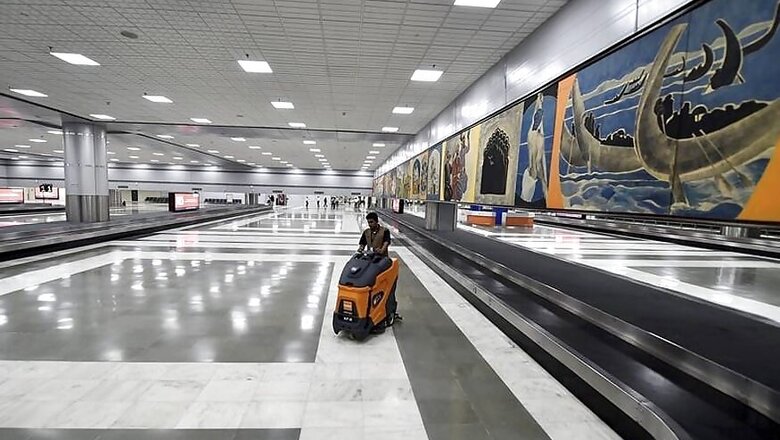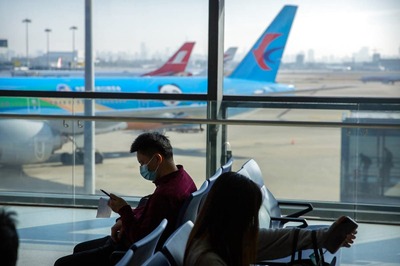
views
New Delhi: Budget carriers Indigo and SpiceJet will partially shift their operations from the Terminal 1 (T1) of Delhi's Indira Gandhi International (IGI) Airport to the newly revamped Terminal 2 (T2) of the airport from midnight on March 25, 2018, GMR-led Delhi International Airport Ltd (DIAL) said.
In a communique, Indana Prabhakara Rao, CEO-DIAL said, "In view of the robust passenger growth and upcoming airport expansion works, DIAL has revamped and recommissioned Terminal 2 of the IGI Airport on 29th October, 2017. We welcome IndiGo and SpiceJet to Terminal 2. This will enable us to start the expansion works at Terminal 1. During the expansion of Terminal 1 over the next 4 years, Terminals 2 and 3 will cater to the growing traffic over the next 3-4 years. DIAL would leave no stone unturned to make Delhi Airport a preferred Hub Airport of Asia. Our focus towards maintaining the highest level of safety and operational efficiency is unwavering. We continuously aim to provide convenience to passengers with our services."
DIAL said that going by a recent order of the Supreme Court of India, Indigo and SpiceJet had submitted lists of sectors set to make the shift to T2 and DIAL provided its consent to the airlines' proposal. Indigo will shift 10 sectors i.e. flight nos 6E 2000-6E 2999 to T2. The flights include those catering to destinations like Amritsar, Bagdogra, Bengaluru, Bhubaneshwar, Chennai, Raipur, Srinagar, Udaipur, Vadodara and Vishakhapatnam. On the other hand, SpiceJet will shift seven sectors i.e. flight nos SG 8000-SG 8999. These flights include those catering to destinations like Ahmedabad, Cochin, Goa, Gorakhpur, Patna, Pune and Surat.
The latest shift of operations to T2 will lead to a rise in passenger area for flyers from current available passenger area of 25,917 sqm at T1 to combined 62,010 sqm, said DIAL. Terminal 2 provides an additional 36,093 sq m passenger area.
T2 was opened to the public late last year after DIAL refurbished the terminal to help it accomodate the growind demand for more capacity and also to provide a hassle-free and safe journey to passengers during the planned expansion of terminal 1.
The shifting of operations was first proposed in the Master Plan 2016. DIAL had earlier proposed partial shifting of all three carriers to T2--GoAir, Indigo and SpiceJet--till the expansion of terminal 1 was not completed. GoAir had shifted its operations to T2 in October last year, and Indigo and SpiceJet have, after a protracted tussle with DIAL, agreed to make the shift now.
GMR maintains that the shift is aimed at easing traffic pressure at T1. DIAL plans to expand the capacity of T1 from its current 20 million passengers per year to 40 million a year. The expansion will provide 22 aerobridges, modern infrastructure covering landside terminal, airside and other key areas of the airport. DIAL plans to complete the expansion in four years time.
DIAL explained that with T2 operating at an optimal capacity, it has "significantly augmented its traffic handling capacity and is now part of the 60 million club. T2 has many key features to provide seamless experience to flyers including adequate check-in counters, X-ray machines, baggage reclaim belts, aerobridges and parking bays for aircraft."
T2, which had been closed for regular operations for many years, was serving as the 'Haj terminal' till October 2017. Before it closed normal operations, it was IGI's international terminal. The expansion of IGI was called upon due to rising passenger flow. DIAL said, citing Airports Council International (ACI) -- ASQ 2017 rankings, that IGI had ranked first in the highest category i.e. over 40 million passengers per annum (MPPA).
















Comments
0 comment